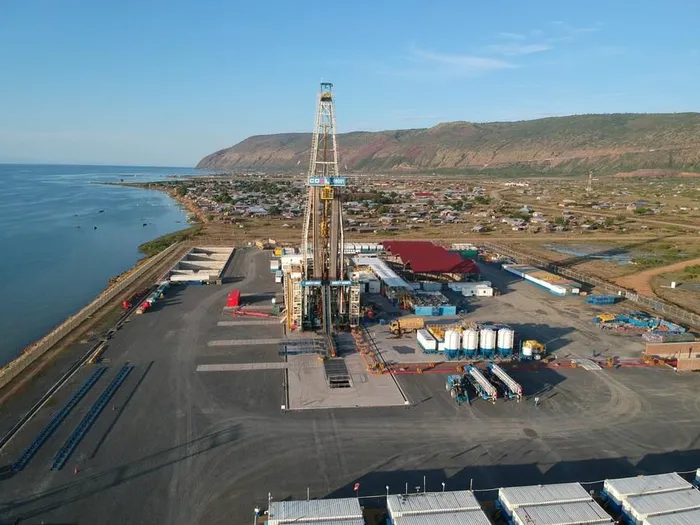Africa’s Independents Take the Lead in Oil and Gas Growth

The aerial photo, taken on April 1, 2024, shows the Kingfisher Oil Field in Kikube, Uganda.
Image: Xinhua
As global energy majors streamline their portfolios and retreat from certain frontier plays, Africa’s independent and emerging oil and gas companies are stepping into the gap. Their agility, local expertise, and risk appetite are increasingly positioning them as the new drivers of upstream growth across the continent. This trend is becoming more visible in 2025, as independents consolidate acquisitions from majors, launch new drilling campaigns, and attract financing that was previously out of reach.
Shifting from Majors to Independents
Africa’s oil and gas landscape has long been dominated by international oil companies (IOCs), but their footprint is shrinking. Shell, for instance, announced in 2021 that it would exit Nigeria’s onshore sector after more than half a century, citing security risks and environmental liabilities. By March 2025, Shell completed a $2.4 billion sale of its Nigerian onshore subsidiary to a consortium led by ND Western. Similar divestments by ExxonMobil and TotalEnergies have opened opportunities for regional players with deeper local roots.
This shift has coincided with rising African demand for energy security. The continent holds about 125 billion barrels of proven oil reserves and over 620 trillion cubic feet of gas, according to OPEC’s 2024 data, yet nearly 600 million Africans still lack access to electricity. For policymakers, empowering independents is not just about continuity of production but also about accelerating domestic participation in resource management.
Case Studies in Growth
In Namibia’s Orange Basin, one of the world’s most exciting frontier plays, Oregen Energy Corp has raised $7 million in equity to expand its stake in Block 2712A to nearly 34% and assume operatorship. This comes on the back of recent giant discoveries in nearby acreage, where Shell and TotalEnergies have collectively reported finds exceeding 4 billion barrels of recoverable resources since 2022.
Nigeria remains the epicenter of independent-led growth. Shoreline Energy recently completed the acquisition of a 45% interest in OML 30, one of the country’s largest onshore oil fields, and entered a long-term gas supply deal with Shell. Its operator, Heritage Energy Operational Services Limited (HEOSL), is planning to double production at OML 30 from 45,000 barrels per day to 100,000 barrels per day by 2030. Meanwhile, AA Holdings, chaired by Seplat co-founder Austin Avuru, is backing upstream projects through innovative financing structures. Seplat itself has become a national champion, completing its acquisition of ExxonMobil’s shallow-water assets, a deal expected to boost its output by over 95,000 boe/d once regulatory hurdles are cleared.
ND Western, now the operator of Shell’s divested assets, is investing in enhanced oil recovery techniques to maximize returns from mature fields. Nigerian independents already account for about 30% of the country’s oil production, up from less than 10% a decade ago, according to the Nigerian Upstream Petroleum Regulatory Commission. This growing share reflects both the majors’ exit and the independents’ rising operational capacity.
In West Africa, frontier exploration is also reviving. APUS Energy spudded Guinea-Bissau’s first offshore exploration well in nearly 20 years in September 2024. The Atum-1X well, targeting 314 million barrels of recoverable oil near Senegal’s prolific Sangomar field, is a bold attempt to bring a new country into the production map. If successful, it could significantly alter the region’s upstream landscape.
Financing the Next Chapter
Independents are increasingly finding capital through private equity, regional banks, and export credit agencies. The African Export-Import Bank (Afreximbank) announced in 2024 that it had committed over $3 billion in energy financing, much of it directed toward indigenous operators. This diversification of funding is crucial, given that many global banks have scaled back lending to fossil fuel projects under net-zero commitments.
Meanwhile, Africa’s investment environment is shifting to reflect these realities. Despite global calls for reduced fossil fuel use, African producers argue that hydrocarbons will remain vital for decades. The African Energy Chamber estimates that oil and gas will still supply over 50% of Africa’s primary energy mix in 2040, even under aggressive energy transition scenarios.
Independents at the Forefront of AEW 2025
At African Energy Week (AEW) 2025 in Cape Town, companies like Oregen, Shoreline, HEOSL, ND Western, and APUS Energy will be showcasing not only their latest projects but also their strategies for growth in a new era of African-led energy development. According to the Chamber, deals signed at AEW since its inception have been valued at over $15 billion, underscoring its role as the continent’s leading investment platform.
“Making energy poverty history requires unlocking Africa’s full resource potential through the empowerment of local operators,” says Ore Onagbesan, AEW Program Director. “Independents are bringing agility and long-term commitment, taking risks on assets that others have left behind, and reshaping the future of African oil and gas.”
The rise of Africa’s independents reflects a broader shift in global energy dynamics. As majors narrow their focus and global capital for fossil fuels tightens, indigenous companies are stepping up with new investment, local content strategies, and bold exploration plays. Their success will determine not just Africa’s hydrocarbon future but also its progress in tackling energy poverty and building resilient economies in a world still hungry for oil and gas.
Written By:
*Chloe Maluleke
Associate at BRICS+ Consulting Group
Russian & Middle Eastern Specialist
** MORE ARTICLES ON OUR WEBSITE https://bricscg.com/
** Follow https://x.com/brics_daily on X/Twitter for daily BRICS+ updates
Related Topics: